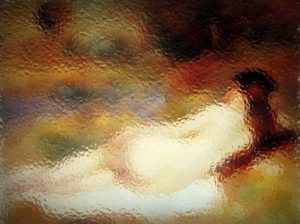What Does it Mean to Dream About a False Awakening?

A dream can be rather vivid, and we sometimes wake up in the middle of the night, which is referred to as a “false awakening.” We have the impression that the event is genuine, but we are still dreaming. A false awakening is a word used to describe this situation. The fact that your brain is waking up, or looking at the possibilities and replaying events from the day, are just a few of the factors that might cause a false awakening when dreaming.
In essence, this is a dream in which you watch yourself waking up and then actually wake up properly a little later. This could be related to getting out of bed in the morning and cooking breakfast only to realize that you are still dreaming. It’s also possible that you wake up in the middle of the night and see and believe that your dream is true.
So, what is the source of this? It can be rather distressing when a plan causes a false awakening. It can be disruptive if you wake up frequently during the night. The good news is that this mistaken waking up is also linked to lucid dreaming and is relatively standard. Lucid dreaming is connected to a mistaken awakening.
What is the reason for a false awakening?
Lucid dreaming differs from false awakening dreams. Rather than waking up in a dream, you dream of waking up! This is a false awakening, and you will believe you are waking up for real. In most cases, while this dream unfolds, you will feel physically positioned in your bed or at home, where you can even prepare breakfast. Many folks mistakenly feel that they are awake whereas the reality is that they have dreamed of waking up but not really awakened from the dream. When you dream in a dream, then you have a similar experience. Let’s have a look at an example. This could happen if you’re resting in your bed, preparing to wake up, but your bedroom isn’t quite like a real one. You wake up in this hazy condition and head downstairs to start breakfast. The physical surroundings appear to be highly identical to your own. There was possibly music playing in the background. Because everything seems to be so real, you believe you are in a waking dream. This is a legitimate false awakening dream; despite waking up in the dream, you are actually still sleeping.
Another significant dream is referred to as dreaming in dreams. These begin to play out like a hallucination, with you returning to sleep within your dream. I’ve been waiting for you all day to tell me what happened. When we look at the science behind why false awakenings occur, we find very little evidence. A false awakening, on the other hand, might be caused by a variety of factors. Greene’s book of lucid dreams was published in the 1960s. This gave an overview of why someone would wake up when dreaming while they were still actually sleeping. It was determined that the dreamer was experiencing tension and stress.
Related: Curtains Dream Meaning
What is the meaning of sleep paralysis?
When we look at sleep paralysis, we can see that it is a legitimate sleeping disorder. When we either wake up or go to sleep, sometimes we experience sleep paralysis. Sleep paralysis is when your brain tries to wake up your body while it is still sleeping. In addition, some people have a life-changing false awakening. The term “sleep paralysis” refers to the inability to move your body when your brain is awake.
What is the difference between sleep paralysis and false awakening?
When you wake up or fall asleep, you may experience sleep paralysis. The brain is awake, but the body is paralyzed. A false awakening occurs when you can wake up but cannot move some areas of your body. This may be your feet or legs. The distinction between the two is that sleep paralysis means that you are entirely paralyzed. A crucial distinction is that a false awakening can only occur in the dream state and sleep paralysis happens when you are awake but cannot move a single muscle of your body until the body itself wakes up.
Related: Being Attacked by the Cat in a Dream Meaning
Recent Posts
Recent Articles

What Does It Mean To Dream About Tests or Examination?
Dream Meaning Of Tests or Examination "I Did Not Do Well In The Test" If you…

The Biblical Meaning Of Falling Teeth In Dreams And Its Spiritual Message
"I Can't Stop Losing My Teeth!" The dreams that we hears about most frequently …

The Biblical Meaning Of Most Common Dreams About Snake
"I Was Bitten By A Snake!!" The snake is one of the most typical animals to a…

The Biblical Meaning Of Dreams About Being Naked And Its Spiritual Message
“I'm Naked!" You are going about your normal routine, such as going to scho…



